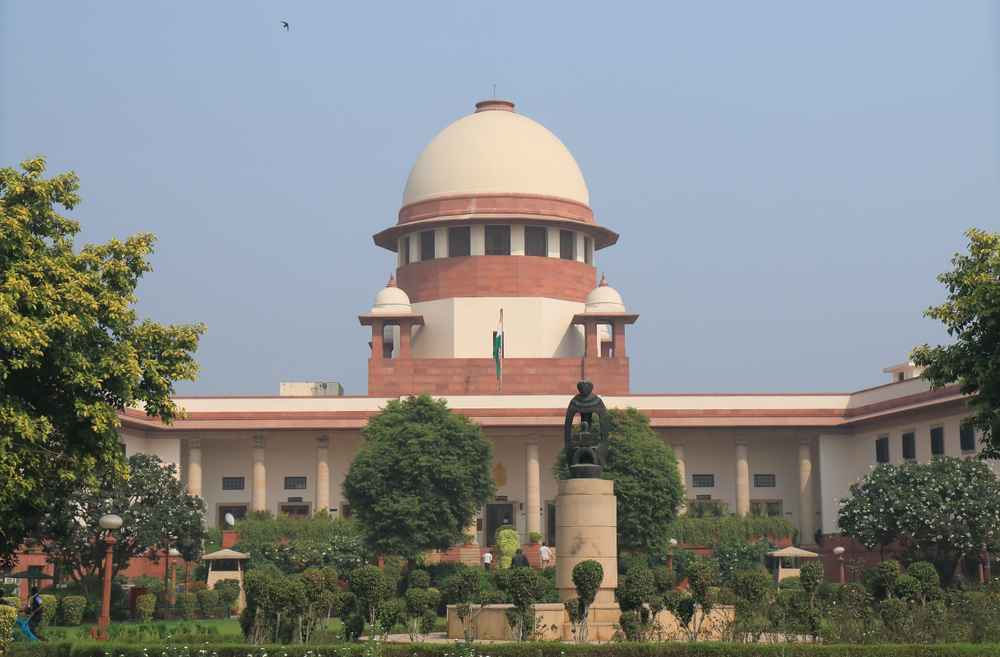The BJP-led Centre was on Monday non-committal on legislative or judicial measures to address the concerns expressed by leaders from across parties about the fate of reservation for Dalits and tribals in the light of a recent Supreme Court judgment.
Social justice minister Thawaar Chand Gehlot told the Rajya Sabha that the government would examine the judgment and take appropriate action. Some of the BJP’s alliance partners have demanded legislative measures to overturn the apex court ruling.
“Our government is devoted to the welfare of Scheduled Castes and Scheduled Tribes. We will take appropriate action after examining the judgment,” Gehlot said.
The court had held on February 7 that states are not bound to provide reservation in appointments and there is no fundamental right guaranteeing quotas in promotions. The bench of Justices L. Nageswar Rao and Hemant Gupta had also said that “no mandamus can be issued by the court directing the state government to provide reservations”.
The court had added that if states wished to exercise their discretion and made such provisions for such quotas, it would have to “collect quantifiable data showing inadequacy of representation of that class in public services”.
The Supreme Court was dealing with pleas against the then Congress-helmed Uttarakhand government’s September 5, 2012, decision to fill up all posts in public services through promotions without providing reservation to Scheduled Castes and Scheduled Tribes, contrary to a state Act. The decision had been challenged in Uttarakhand High Court.
On April 1, 2019, the high court struck down the recruitment process. Following a review petition, the court on November 8 modified its order and said the state government is not obligated to provide reservation in promotion to SCs and STs.
NDA partners Ram Vilas Paswan of the Lok Janashakti Party and Ramdas Athawale of the Republican Party of India have been demanding legislative measures to address the concerns raised about the future of reservation in view of the judgment.
“On behalf of the LJP, I say that there should be reservation in the higher judiciary (as well). All Acts related to reservation should be part of the Constitution,” Paswan said.
He, however, assured the Opposition parties that quotas in jobs and admission to educational institutions would not be discontinued.
Athawale said the government should introduce an amendment bill in Parliament against the Supreme Court judgment.
Congress leader Ghulam Nabi Azad, who is also the leader of the Opposition in the Rajya Sabha, said: “We expected the government to seek a review of the judgment or bring a bill in Parliament to enact a law to overturn the ruling. The government is taking a non-serious view.”
Samajwadi Party leader Ram Gopal Yadav demanded reservation in the higher judiciary. Now, quotas are applicable only in the appointment of judges of lower courts, not high courts and the Supreme Court.
Trinamul Congress leader S.S. Roy, the Congress’s P.L. Punia, the CPM’s K.K. Ragesh and the Bahujan Samaj Party’s S.C. Mishra expressed apprehension about the fate of reservation.
In the Lok Sabha, along with the Opposition, the allies of the BJP too protested the Supreme Court verdict and urged the government to “intervene immediately”.
Seeking not to be seen with the Opposition, the allies, however, sought to hail Prime Minister Narendra Modi for his “commitment” to protecting the rights of the underprivileged sections and expressed confidence in the government.
From the government side, parliamentary affairs minister Pralhad Joshi kept on claiming that the administration had no role in the Supreme Court verdict and blamed the Congress, saying the case dated back to 2012 when the party was in power in Uttarakhand.
Nitish Kumar’s JDU was the most vociferous in backing the government. The party’s leader in the House, Rajeev Ranjan alias Lalan Singh, said the government was “capable” of handling the issue and would “resolve” it.










